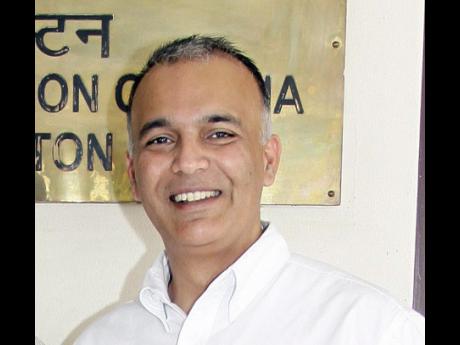Teaching exceptional children
Ability - it is a short and a sweet word, but it has a deeper meaning, and, when translated to application, this word becomes the marked difference between leading a 'normal' life and leading one that isn't so normal.
In the grand scheme of life, the perceivable 'normal' tasks become climbing a 90-degree bare rock face - one has to rely on one's sheer guts, grit, and stamina to endure that climb, one knuckle length at a time, and where any jutting surface provides enough support for the body.
Aya Nakashima, an occupational therapist and Japan International Cooperation Agency (JICA) volunteer at the Jamaican Association on Intellectual Disabilities (JAID), is working with special-needs students with autism spectrum disorder, attention difficulty hyperactivity disorder, learning disability and physical challenges.
Nakashima is helping these students in to harness and develop mobility - fine motor skills, handwriting, and work-processing skills. It is a labour of love in many manifestations and critically requires patience and understanding.
"They need a lot of support and have to been given positive messages," she said.
This, she said, has to come from all quarters - parents, teachers, friends and the community at large. Lack of encouragement often, leads to a breakdown in the progress.
"Some of these children lack confidence, and it becomes a challenge to get them interested in trying new things and to boost their confidence that they achieve a lot," Nakashima said.
LONG ROAD
It is a long road, and perseverance is critical.
Nakashima begins by assessing the individual student; the objective is to ascertain their mobility and then draw out a therapy session to improve their functions.
Additionally, she said, she conducts regular meetings with parents and teachers to apprise them of the progress and give recommendations on how to further improve the abilities and functions.
She said, though, that these sessions and interventions help to enhance the abilities of the students to perform their tasks with ease and a critical element in their learning process.
But, she added, these therapies also provide impetus and improve overall capacity.
For these therapies to be effective the overall environment needs to be conducive and amiable.
"The environment around these children affects their growth and functioning," Nakashima said. "An occupational therapist can help to provide the children with tools to enhance their abilities. They need the proper settings and support for them to function."
There is a definitive need for proper rehabilitation programmes, she said, and occupational therapy is the critical link in the chain, but is, unfortunately, lacking in Jamaica.
"Most of the students do not have access or have not gone through appropriate rehabilitation programmes," she said. "This creates secondary issues like behaviour problems, poor muscle strength, and joint deformation, among others.
PAUCITY OF RESOURCES
One of the reasons for these children not getting access to therapy, she said, is that there is a paucity of resources in Jamaica.
"Jamaica has only nine occupational therapists, which severely limits the children's [ability] to get therapy," Nakashima said.
This is worrisome as, according to UNICEF, more than 37,000 Jamaican children live with one or several forms of disabilities, including sight, hearing, speech, physical, mental, and learning disabilities.
One can do the math the gap between the number of occupational therapists and the children who require the therapy throws a huge curveball.
Most of these professionals, she said, got their licences in the United States or the United Kingdom, and this limits the opportunities for those who want to pursue occupational therapy as a profession in Jamaica.
Closer to home, the University of the Southern Caribbean, Trinidad and Tobago, offers a master's entry-level training programme.
Nakashima, who came to Jamaica in December 2016 and leaves at the end of this year, is hoping for continuance and sustainability.
"There is a need to establish an occupational therapist school in Jamaica," Nakashima said, adding that Occupational Therapist Association of Jamaica (OTAJ) is working towards that mandate. "If more professionals can be trained (in Jamaica), the children will have more opportunities to receive therapy."
Nakashima is putting international best practices in place.
"While I am here (in Jamaica), I would like to share ideas on how to support these children at school and at home with their family and teachers," she said.
Further, she says, there needs to be social acceptance and a change in perception. Stigma attached to disabilities is a major reason for exclusion.
A UNICEF-supported study found that some parents viewed the birth of a disabled child as having supernatural connections 40 per cent said the child was 'sent by God', while 18 per cent thought the disability was due to an evil spirit, punishment for a sin, or looking at a disabled person during pregnancy.
Unfortunate, but, if we were to look at things from the other side of the coin, these children are 'God-sent' because all of them are special they are different, and they are exceptional.



